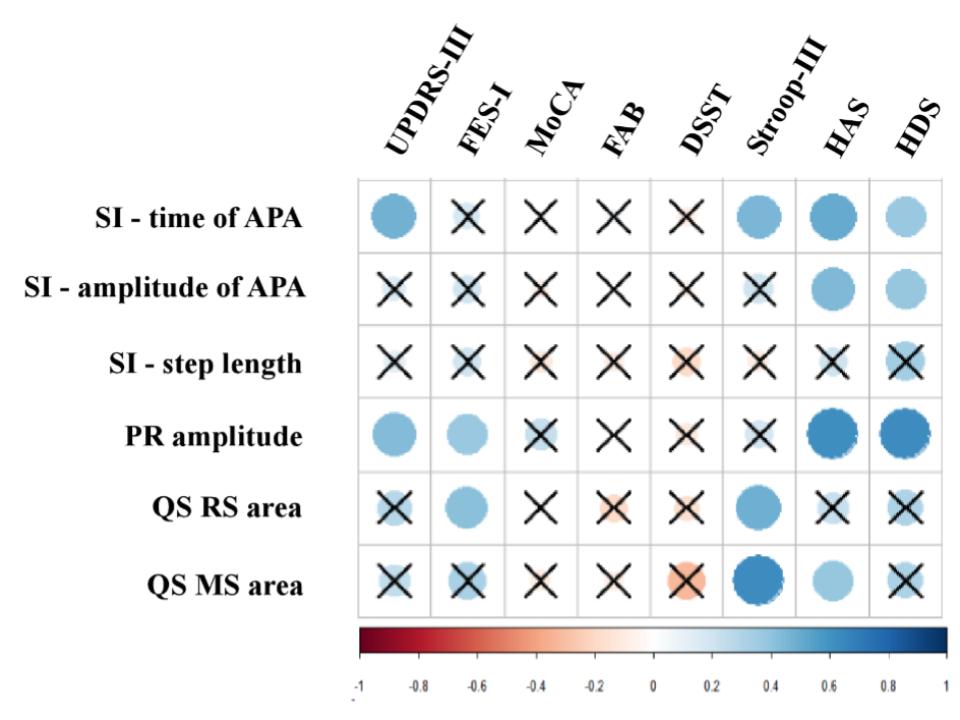Category: Parkinson's Disease: Cognitive functions
Objective: To investigate the association between emotional/cognitive factors and the parameters of postural control of patients with Parkinson’s disease (PD) and freezing of gait (FoG).
Background: FOG in PD is a relatively common symptom and considered a complex phenomenon given the contribution of motor, cognitive and emotional factors to its pathophysiology. Recent studies have described postural control impairments specific to those PD patients with FOG. However, the contribution of cognitive and emotional factors to postural control in this population is still not clear.
Method: Thirty-four patients with PD and FOG, Hoehn & Yahr (H&Y) stage 3 performed a cognitive (Stroop-III), motor (UPDRS-III) and emotional (International Scale for the Effectiveness of Falls, Hospital Anxiety Scale and Hospital Depression Scale) test and postural tasks in response to external perturbations, step initiation (SI) and maintaining balance in quiet posture (QS).
Results: Our results showed that the severity of the PD in this population was positively associated with problems in step initiation (time of APA) and instability after an unexpected postural perturbation (postural response amplitude). Fear of falling, anxiety, depression, and inhibitory control are strongly correlated with parameters of anticipatory and reactive postural control.
Conclusion: These results support the role of cognitive/emotional factors in the anticipatory and reactive control of posture of patients with PD and FOG. These findings are extremely relevant for the pathophysiological understanding of this clinical sign and for rehabilitation of postural control, which should be developed considering the cognitive and emotional aspects of these patients.
To cite this abstract in AMA style:
CN. de Oliveira, ACL. de Lima-Pardini, C. Souza, R. Marquesini, LA. Teixeira, CS. Silva-Batista, DB. Coelho. Association between emotional/cognitive factors and postural control in individuals with Parkinson’s disease and freezing of gait [abstract]. Mov Disord. 2021; 36 (suppl 1). https://www.mdsabstracts.org/abstract/association-between-emotional-cognitive-factors-and-postural-control-in-individuals-with-parkinsons-disease-and-freezing-of-gait/. Accessed February 3, 2026.« Back to MDS Virtual Congress 2021
MDS Abstracts - https://www.mdsabstracts.org/abstract/association-between-emotional-cognitive-factors-and-postural-control-in-individuals-with-parkinsons-disease-and-freezing-of-gait/

